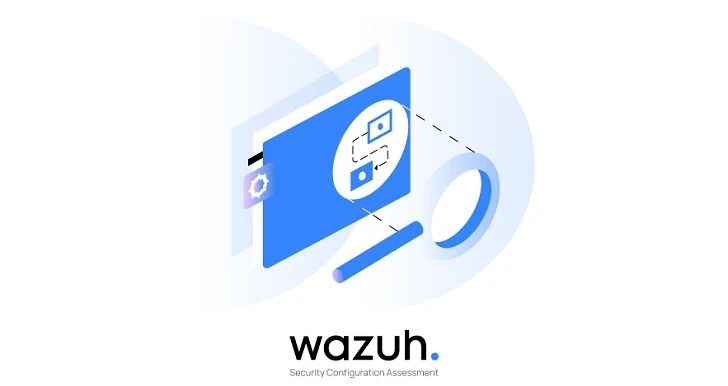Security Configuration Assessment (SCA) is critical to an organization’s cybersecurity strategy. SCA aims to discover vulnerabilities and misconfigurations that malicious actors exploit to gain unauthorized access to systems and data. Regular security configuration assessments are essential in maintaining a secure and compliant environment, as this minimizes the risk of cyber attacks. The assessment provides insight into your current security posture by performing configuration baseline checks on services and applications running on critical systems.
How SCA works
SCA is performed by checking the configurations of your IT assets against known benchmarks such as the Center for Internet Security (CIS) benchmark and compliance standards such as NIST, GDPR, and HIPPA. Regulatory standards provide a global benchmark for best practices to help organizations enhance their IT hygiene and improve customer trust. The CIS benchmark provides a guideline for best practices for security configuration and has recommendations for various vendor products.
The configuration data from the target endpoints are collected and compared against the established baseline using known benchmarks such as CIS and NIST to identify misconfigurations. The identified exceptions may lead to exploitable vulnerabilities or weaken the endpoint’s overall security posture.
The report generated by the assessment identifies configuration issues and provides descriptions and rationale for the identified issues with mitigation measures. This report aids security analysts in applying the necessary changes and updates to bring systems and configurations in line with the secure baseline. This may involve adjusting settings, patching vulnerabilities, or disabling unnecessary services.
Why SCA is important
Security Configuration Assessment (SCA) is a critical practice in cybersecurity that aims to enhance the security posture of IT assets. Here are some key benefits of conducting security configuration assessments:
- Identifying vulnerabilities – Identifying vulnerabilities in system configurations allows organizations to take proactive steps to prevent cyber attacks.
- Reducing attack surface area – SCA helps to reduce the attack surface area of an organization by identifying attack vectors such as unnecessary services, open ports, or overly permissive settings. With the help of SCA, organizations can identify and minimize their attack vectors.
- Complying with regulatory standards allows organizations to assess and implement compliance with regulatory standards, best practices, and internal security policies. SCA helps ensure that systems are configured according to these standards (PCI-DSS, HIPAA, NIST, TSC, CIS), reducing the risk of non-compliance.
- Enhancing IT hygiene – By regularly assessing and addressing configuration gaps, organizations can improve their IT hygiene and reduce the likelihood of cyber attacks. SCA identifies configuration gaps and provides security analyst insights on how to strengthen system defenses and enhance the overall security posture of the organization.
- Minimizing human error – SCA helps identify and rectify configuration errors made by administrators, reducing the risk of accidental security breaches. Misconfiguration is one of the common causes of security incidents, SCA enables early detection of configuration issues.

Security Configuration Assessment with Wazuh
Wazuh is a free, open source security platform that offers unified XDR and SIEM capabilities across workloads on cloud and on-premises environments. It provides a centralized view for monitoring, detecting, and alerting security events occurring on monitored endpoints and cloud workloads.
The Wazuh SCA module performs scans to detect misconfigurations on monitored endpoints and recommend remediation actions. Those scans assess the configuration of the endpoints using policy files that contain checks to be tested against the actual configuration of the endpoint. This capability helps you manage your attack surface efficiently to improve your security posture.
Benefits of using Wazuh SCA module
Wazuh SCA module offers the following benefits:
- Continuous monitoring – With a thorough and continuous SCA scan, misconfigurations and system weaknesses are easily identified in operating systems and applications installed on your endpoints. Wazuh allows you to create custom policies that scan endpoints and verify if they conform to your organization’s policies.
- Flexibility – Organizations can easily perform SCA scans on many devices with varying operating systems and applications. Wazuh SCA capability is enabled by default on monitored endpoints. This allows security analysts to know the current level of security hardening on every endpoint monitored by Wazuh. Security teams can use the Wazuh SCA capability to ensure coverage and secure configurations for your remote endpoints in a fast-growing environment.
- Compliance monitoring – The Wazuh SCA module performs regular checks on monitored endpoints, ensuring compliance with PCI DSS, HIPAA, NIST, TSC, CIS, and other relevant standards. It allows organizations to assess and implement compliance with regulatory standards, best practices, and internal security policies. It also ensures compliance with your company’s internal policies/baselines.
- Reporting – Wazuh generates detailed reports of checks performed on your endpoint. Wazuh SCA reports contain identified vulnerabilities, compliance gaps, and remediation actions to secure your endpoints. Also, the Wazuh dashboard has a Security configuration assessment module that allows you to view SCA scan results for each agent. You can take clear, actionable steps to ensure compliance, secure system configurations, and improve IT hygiene.

- Multi-platform support – The Wazuh SCA module supports and has SCA policies for various operating systems and services such as Linux, Windows, macOS, Solaris, AIX, HP-UX, Microsoft SQL, PostgreSQL, Oracle database, NGINX, Apache, and more.
Conclusion
Security configuration assessment is a fundamental component of a comprehensive cybersecurity strategy and risk management. Regular SCA scans can help an organization to proactively identify misconfigurations and system flaws, mitigate configuration-related risks, and reduce their attack surface. Having a well-documented and secure configuration baseline allows organizations to understand the impact of an incident better and recover more quickly. Through regular SCA scans, organizations can adhere to regulatory requirements by identifying and fixing exceptions. This enhances an organization’s reputation with customers, partners, and stakeholders, instilling trust in the security of its systems.
The Wazuh SCA module helps users perform security checks against monitored endpoints to improve their overall security posture in a constantly changing threat landscape. Take the first step in system hardening by using the Wazuh SCA module to check for exposures and misconfigurations in your endpoints.
Join the Wazuh community to get started.
